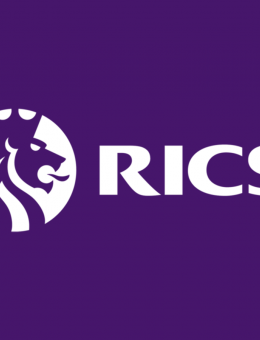
CELEBRATING A QUALIFIED SUCCESS
Published 19 May 2025
When you engage a professional, you would like to think that they hold the right qualifications for the job, writes Harry Downing. But the plethora of professional accreditations can be confusing: is holding such a qualification a pre-requisite for being able to undertake that profession, or is it an ‘optional extra’ – and if so, how robust is the structure behind that qualification?
For some roles, such a professional qualification is legally required to do a job. You can probably immediately name some of them (nurse or solicitor for example), but you might be surprised to learn that the gov.uk website lists 281 separate such ‘regulated professions’.
Separate from this legal licensing (but often overlapping with it) comes chartered status. Originating from royal charters issued to professional bodies by the Crown, chartered status denotes a professional who has achieved a specific level of competence in their field, an achievement which is recognised by the award of a formal credential by a chartered body.
These chartered bodies have a responsibility to act in the public interest (rather than in the interest of their particular profession), ensuring that their members maintain professional and ethical standards.
In estate agency, responsible firms have been calling for years for the profession to be regulated, with the professional body Propertymark developing a range of rigorous qualifications as part of the process. But as it stands, anyone can set themselves up as an estate agent without such qualifications, which is why it is so important when choosing a firm to ensure that it operates under the Propertymark aegis.
In commercial property there is a much more longstanding chartered set-up, with the Royal Institution of Chartered Surveyors, founded in 1868, now the global professional body for people working in the built environment, construction, land and property.
Becoming a Member of the RICS is a rigorous process. The most common route is following up an accredited degree with at least two years’ postgraduate study while working in the profession.
Achieving the qualification involves both passing an exam and demonstrating practical experience. Maintaining it entails an extensive ongoing programme of continuous professional development. I know all of this because I have just been admitted to RICS as a member, joining eight of my colleagues at Arnolds Keys in holding the qualification.
Unlike licensed professions, being a member of RICS is not essential in order to be able to carry out almost all commercial property-related matters (conducting ‘Red Book’ valuations is one of the few exceptions). But the letters MRICS do guarantee a level conduct and competence, as well as trust, ethical standards and integrity.
Share this story
Arnolds Keys Blog

MAKING RENTED HOMES ACCESSIBLE FOR ALL
16 May 2025
Living in a rented home used to be something which was predominantly done by young people, but that is no longer the case, writes Catherine Hunt. Read more >

HUGE ‘REGIONALLY IMPORTANT’ NORWICH INDUSTRIAL SITE COMES TO THE MARKET
14 May 2025
One of the largest industrial sites in Norfolk to come to the market for many years has been launched, incorporating a 7.66 acre site with over 94,000 sq ft of... Read more >

FIRST-TIME BUYERS AND TOP END DRIVING AN ACTIVE MARKET
9 May 2025
Fears about a slump in the market after stamp duty rates were restored to their pre-discount levels at the end of March appear to have been wide of the mark,... Read more >

ICONIC GORLESTON SEAFRONT BUILDING UP FOR SALE
22 April 2025
An iconic Norfolk seaside building has been put up for sale, offering an attractive opportunity to create a new leisure development. Read more >
